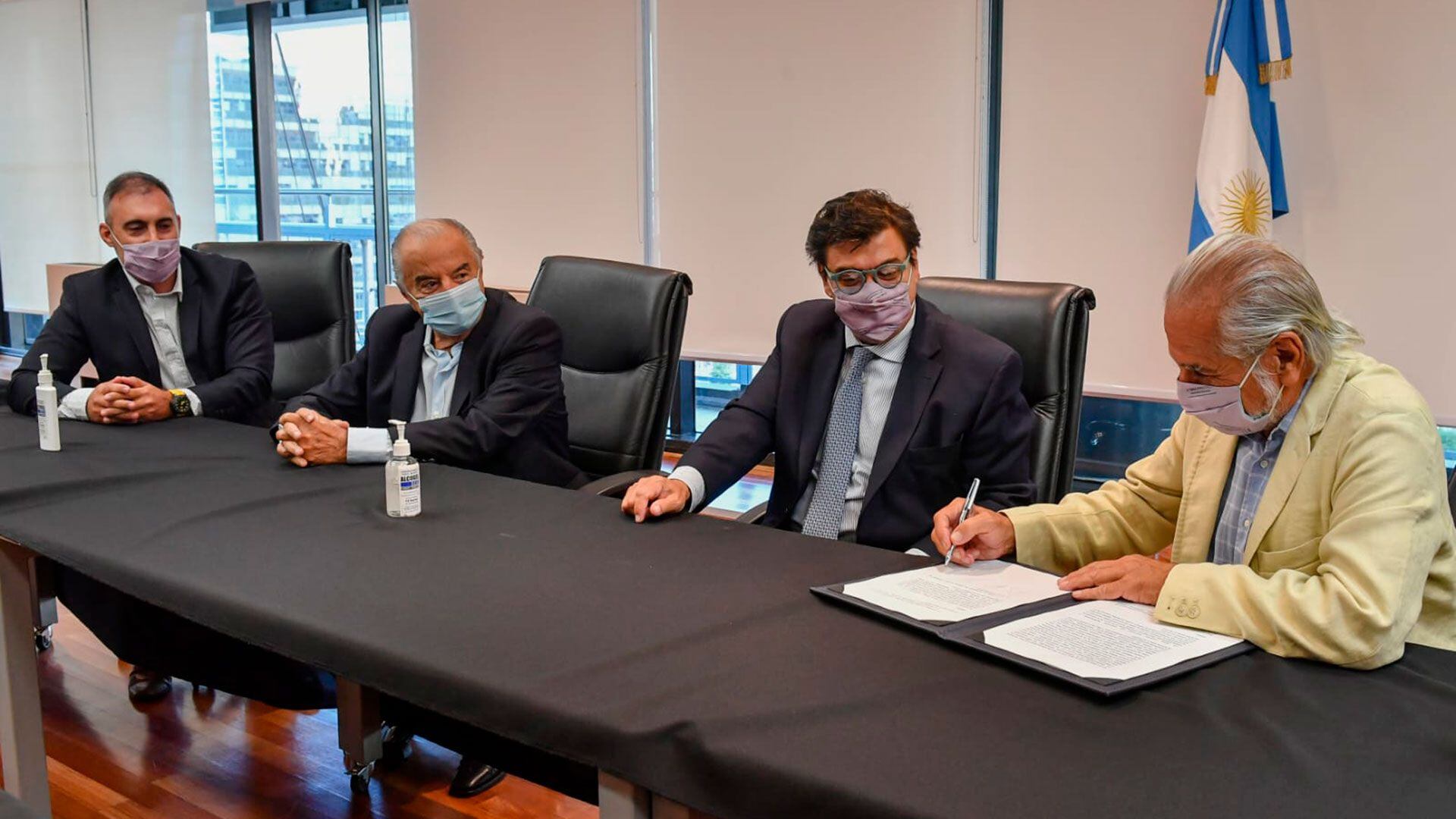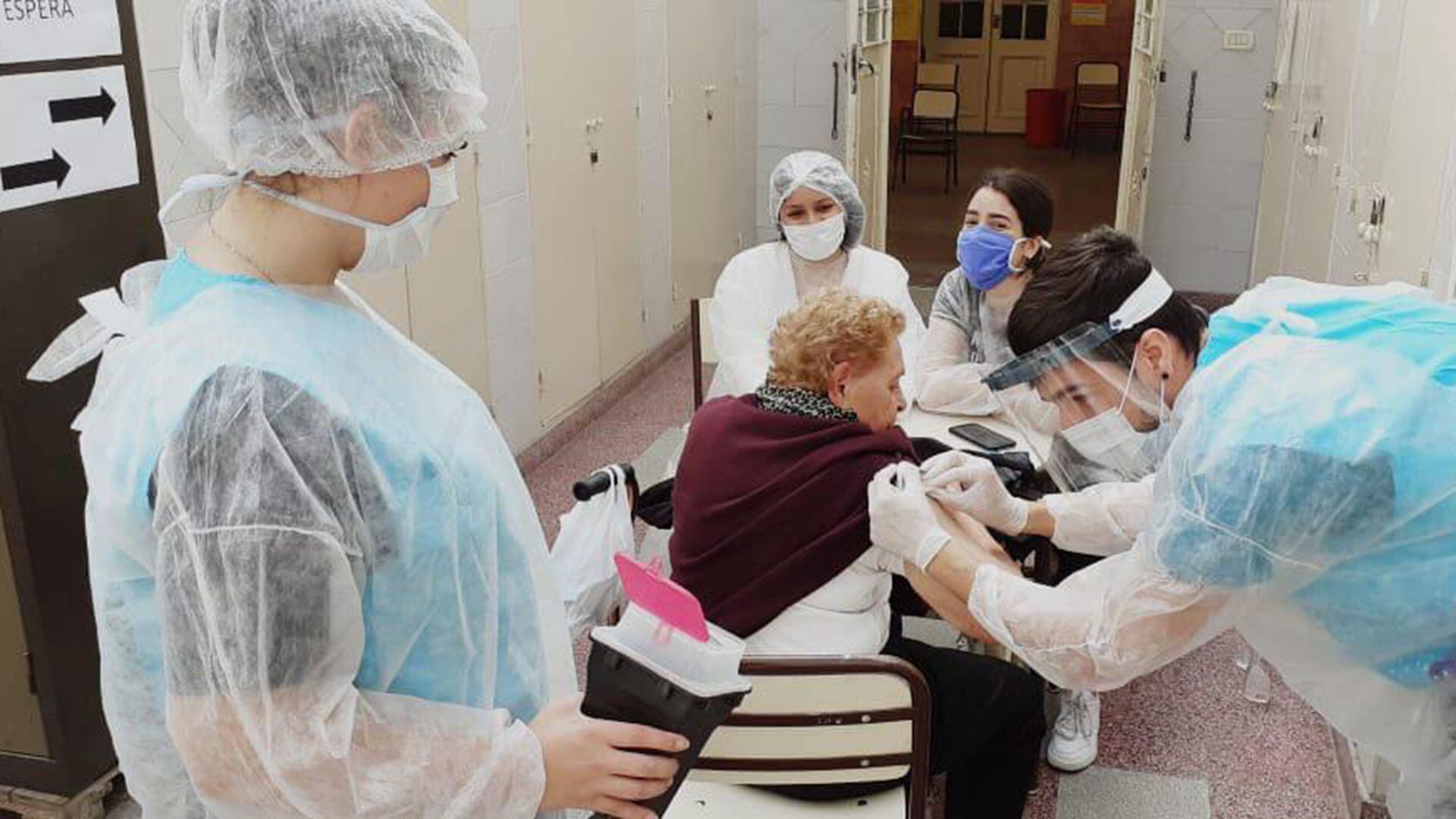
Who will stay on Alberto Fernández's side? Who is Cristina Kirchner? In this rupture of the governing coalition that was formalized with the legislative approval of the agreement with the International Monetary Fund (IMF), the separation of property of the All Front does not include trade unionists. For now. The economic adjustment that will come with the understanding with the Fund will lead to union realignments.
Nobody knows how ultraalbertists like Hector Daer (Health) and Antonio Caló (UOM) will do to contain their bases if inflation continues to grow and prices cannot be domesticated. Most likely, they will all end up on the street, even if it is as a measure of personal preservation. The Government is aware of this and is showing signs that it will be very pragmatic towards the paritarians. The suggested salary cap for the 2022 wage negotiations is 45%, which is exactly the figure agreed by the metallurgical union this week with employers in the sector with the official expectation that it will be a “joint witness”. And, in addition, the same percentage increase that was agreed for the minimum wage (which will reach 47,850 pesos by the end of the year).
But in the face of annual inflation that would reach 60%, according to estimates, there will be overperformances and unions that will break the official ceiling without any regret. The Toll Union, whose deputy secretary is Facundo Moyano, a critic of the Frente de Todos, has already done so by closing a salary review that reached 58% and which will be reopened in June to negotiate the new agreement.
So far this year, there have been figures that have shaken official forecasts: 54% for Commerce employees, from an extra 13% increase; 45.4% in four tranches for teachers, which in the case of university teachers completed 53% by 2021; 52.7% for teachers Food workers for the period May 2021-April 2022; 52% for railway personnel according to the 2021-2022 peer review, which reaches 60% with bonuses; 50% for the Meat Industry Federation, and 54% for state workers (for the additional agreed 14% in two sections).

Other key paritarians are coming, although no one wants to hurry in such a marked inflationary context and without guarantees of any relief. It is that signing a wage agreement now is a guarantee of falling behind the rising cost of living and, consequently, of foreseeable protests by members. For this reason, for some unions, the salary advance on account reappears, in the form of a lump sum, as a variant to fill the pockets of their workers and kick parity forward.
Even so, in trade unionism there are some unresolved unknowns. One of them is the fate of the President's “war” against inflation. Next week, Alberto Fernández will welcome employers and union leaders from the General Confederation of Labour (CGT) and the Argentine Workers' Confederation (CTA) to discuss a price and wage agreement.
For the trade union leadership, as they confess in privacy, it is a worn-out and inconducive formula in the light of the experience of long decades in Argentina, but for the government government it is a political tool that will make it possible to stage the concern about an escalation of increases in the gondolas that will affect the ballot boxes in less than two years.

In the CGT, they also want to see the president because of another pressing concern: the social works system is on the verge of financial collapse, according to experts from the workers' central office, Daer and Carlos Acuña, two of the zegetista co-owners. The yellow lights came on last week: the Superintendency of Health Services paid only 2.5 billion pesos to social works in refunds for highly complex treatments, when it should have transferred 4 billion pesos. Between income and expenditure, social works operate with a deficit of 50 billion pesos.
The CGT has not yet reached an audience with the Minister of Health, Carla Vizzotti, to discuss this issue, although it is aware of the situation: the Superintendent of Health Services, Daniel López, a man from Ginés González García, listens every day to union complaints. Will Alberto Fernández be able to solve this crisis that upsets the union leadership? There is a lot of pessimism. The Government never sent about 4,7 billion pesos to social works, which remain to be transferred out of a total of 11 billion pesos to offset the costs of transport and education in the field of disability. The President promised this to the workers' headquarters twice during the past year, but the money has not yet reached its recipients (nor do they think it will arrive).
Union unrest is growing. Strong criticism of the Government broke into two hectic meetings of the CGT held last week, on Tuesday and Wednesday. Not only because of the crisis of social works. There are also complaints about the puzzling style of the president and about the ministers who do not answer their phones. “Do we have to make a stoppage to be heard?” , asked one leader. Another colleague said: “The picketers protest and give them what they want. We are aligned with the Government, but we don't protest and that's why they don't give us anything.”
That is why, in addition to the effects of adjustment, nobody rules out that all unionism, both Alberto Fernández's dilect children and those of Cristina Kirchner, ends up mobilizing, even if only to avoid suffering the discomfort of the grassroots.
KEEP READING:
Últimas Noticias
Debanhi Escobar: they secured the motel where she was found lifeless in a cistern

The oldest person in the world died at the age of 119

Macabre find in CDMX: they left a body bagged and tied in a taxi
The eagles of America will face Manchester City in a duel of legends. Here are the details

Why is it good to bring dogs out to know the world when they are puppies




